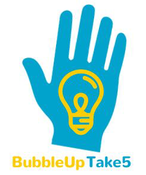1. An article in this weekend's The Washington Post titled "Meet the parents who won't let their children study literature" really struck me. I graduated with a double major in English and History from a school with a strong liberal arts program and I feel that my education has served me well; it makes me sad that parents are discouraging their children from this kind of education. I especially appreciate this point made by author Steven Pearlstein, a writer and Public Affairs professor (emphasis added): In today’s fast-changing global economy, the most successful enterprises aren’t looking for workers who know a lot about only one thing. They are seeking employees who are nimble, curious and innovative. The work done by lower-level accountants, computer programmers, engineers, lawyers and financial analysts is already being outsourced to India and the Philippines; soon it will be done by computers. The good jobs of the future will go to those who can collaborate widely, think broadly and challenge conventional wisdom — precisely the capacities that a liberal arts education is meant to develop. 2. Corey wrote a post aimed at new teachers a few weeks ago. In a similar vein, Nicholas Provenzano, The Nerdy Teacher, published his Tips for New Teachers. I like so many of his list of 15, but I LOVE #7. Shocker, I know. Speaking of tip lists for teachers as we all start up again, I also like this post by Gwenyth Jones blogger at The Daring Librarian, 6 Super Geeky Tech Tips for the New School Year. 3. In a piece entitled "10 ways well-meaning white teachers bring racism into the classroom," author Jamie Utt not only highlights how white teachers act unintentionally racist, but also provides solutions for each scenario. 4. An article from Australian educator Fay Tran, Myths and Misconceptions about Literacy, puts forth 11 widespread misconceptions and aims to clear them up. As a parent of one child for whom reading came very easily at a very young age and another for whom it has been much more of a challenge, it's incredibly helpful for me to see this list. And, as an educator who teaches a large and diverse group of learners, it is crucial for me to understand and be able to invalidate each of these myths. 5. The best part about this New York Times article, The Power of 'Why' and 'What If?' on the value of asking questions and being curious, is that is appeared in the jobs section. The author suggests some ideas for encouraging employees to ask more questions, but if we could hold on to the wonder inherent in our 5 year olds as they come into our classrooms in elementary, middle, and high school, employers wouldn't have to spend time teaching questioning; they would instead just be able to hire innovators. What made you think this week? I'd love to hear about what you've been mulling over! Gretchen You might also like:BubbleUp Take5: Writing, Art, Growth Mindset, and more (January 24, 2017)
New Teacher? Start Here! (August 16, 2016) New Librarian? Start Here! (August 9, 2016) Share Books to Connect with Kids (May 17, 2016)
0 Comments
Your comment will be posted after it is approved.
Leave a Reply. |
Who We Are
Join our list!Archives
September 2020
Categories
All
|







 RSS Feed
RSS Feed